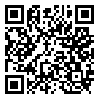Volume 7, Issue 2 (volume7, Issue 2 2019)
CPJ 2019, 7(2): 63-80 |
Back to browse issues page
Download citation:
BibTeX | RIS | EndNote | Medlars | ProCite | Reference Manager | RefWorks
Send citation to:



BibTeX | RIS | EndNote | Medlars | ProCite | Reference Manager | RefWorks
Send citation to:
Samimi Z, Farid A, Habibikaleybar R, Mesrabadi J. Comparison of the Effectiveness of Emotional Working Memory Training and Neutral Working Memory Training on Cognitive Functions and Students' Test Anxiety Symptoms. CPJ 2019; 7 (2) :63-80
URL: http://jcp.khu.ac.ir/article-1-3205-en.html
URL: http://jcp.khu.ac.ir/article-1-3205-en.html
Azarbaijan Shahid Madani University , abolfazlfarid@gmail.com
Abstract: (9386 Views)
The purpose of this study was to compare the effectiveness of emotional working memory training and neutral working memory training on improving cognitive functions and decreasing test anxiety symptoms in a group of university students. 60 students with high test anxiety were selected with Spielberger test anxiety inventory. Subjects were divided into three groups: emotional working memory training, neutral working memory training and control. Subjects in the experimental groups received 15 minutes of 45 sessions of emotional and neutral working memory training, while the control group received no intervention. All participants were assessed before and after training using Spielberger test anxiety inventory, Wechsler Digit Span Test, and continuous performance test. Data were analyzed using multivariate analysis of covariance in SPSS-22. Result showed that the subjects in the emotional working memory and he neutral working memory group had a significant improvement in the symptoms of anxiety, direct and inverse Digit Span Test, omission error, commission error and reaction time compared to the control group. The results also showed that the subjects in the emotional working memory group had higher improvement in Emotionality (emotional component of test anxiety) and presentation error compared to the neutral working memory group. Based on the results of the present study, the use of working memory-based computer training, especially emotional working memory, can be suggested as an effective intervention to reduce test anxiety symptoms and improve working memory and sustained attention.
Type of Study: Research |
Subject:
Special
Received: 2020/01/22 | Accepted: 2020/02/15 | Published: 2020/02/24
Received: 2020/01/22 | Accepted: 2020/02/15 | Published: 2020/02/24
Send email to the article author
| Rights and permissions | |
 |
This work is licensed under a Creative Commons Attribution-NonCommercial 4.0 International License. |






